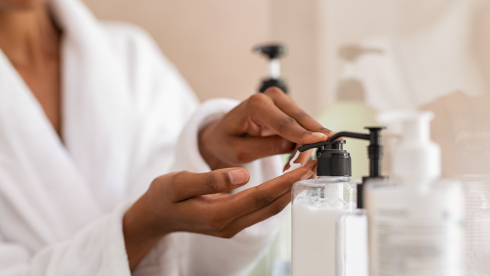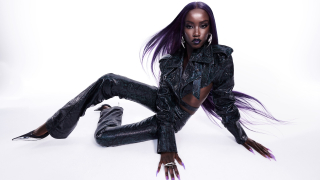Last Thursday, I took my son to meet Lucia McBath, because he is 13, about the age when a Black boy begins to directly understand what his country thinks of him. His parents cannot save him. His parents cannot save both his person and his humanity. At 13, I learned that whole streets were prohibited to me, that ways of speaking, walking, and laughing made me a target. That is because within the relative peace of America, great violence—institutional, interpersonal, existential—marks the Black experience. The progeny of the plundered were all around me in West Baltimore—were, in fact, me. No one was amused. If I were to carve out some peace myself, I could not be amused either. I think I lost some of myself out there, some of the softness that was rightfully mine, to a set of behavioral codes for addressing the block. I think these talks that we have with our sons—how to address the police, how not to be intimidating to White people, how to live among the singularly plundered—kill certain parts of them which are as wonderful as anything. I think the very tools which allow us to walk through the world, crush our wings and dash the dream of flight.
Jordan Davis was also given a series of talks, which McBath believes ultimately got him killed. We were sitting in the bar area of the Millennium Hotel in Times Square. She had a water. I had a coffee. My son sat back and watched. She talked about Jordan's first days in public school after several years of home school. She talked about how he went from shy caterpillar amazed at the size and scope of his new school to social butterfly down with kids in every crowd. He had strong opinions. She thought he would be a politician or an activist. It was in the blood. Her father, Lucien Holman, was head of the Illinois NAACP and served on the executive board. Lucia McBath herself is now the spokesperson for Moms Demand Action for Gun Sense in America.
"We always encouraged him to be strong. To speak out," McBath told me. "We tried to teach him to speak what you feel and think diplomatically."
She took a moment here. Her voice quavered but held. She said, "Even in that case with Jordan and the car, I think that he was not as diplomatic as he could be. That does not let Michael Dunn off the hook," McBath told me. "But I say to myself as a mother, 'I didn’t teach you and train you to do that. Adults are adults and you are still a child.'"
Agency is religion in Black America. Benjamin Banneker made it. Harriet Tubman made it. Madame C.J. Walker made it. Charles Drew made it. Malcolm X made it. Barack Obama made it. You must make it too, and there is always a way. The religion of autoliberation is certainly not rebutted by the kind of graphs and stats that keep me up at night and that can easily lead to suicidal thoughts. Yours is the only self you will ever have. One must discover how to live in it or perish.
She continued, "In my mind I keep saying, 'Had he not spoke back, spoke up, would he still be here?' I don't know. But I do know that Jordan was Jordan to the end. I think Jordan was defending his friends. 'We’re not bothering you. We don’t know you. You don’t know us. Why can’t we play our music as loud as we want?'"
I told her that I was stunned by her grace after the verdict. I told her the verdict greatly angered me. I told her that the idea that someone on that jury thought it plausible there was a gun in the car baffled me. I told her it was appalling to consider the upshot of the verdict—had Michael Dunn simply stopped shooting and only fired the shots that killed Jordan Davis, he might be free today.
She said, "It baffles our mind too. Don’t think that we aren’t angry. Don’t think that I am not angry. Forgiving Michael Dunn doesn't negate what I’m feeling and my anger. And I am allowed to feel that way. But more than that I have a responsibility to God to walk the path He's laid. In spite of my anger, and my fear that we won’t get the verdict that we want, I am still called by the God I serve to walk this out."
I asked if she'd considered that Dunn might never be convicted of Davis's murder. "It's a strong possibility," she said. "The minute we looked at the jury instructions, we thought, 'That right there is what will keep Jordan from getting a guilty verdict.' I was crushed but not surprised."
A thought came to me that had been swirling for days: Dunn might win on appeal. I considered the possibility of him walking free. I considered the spectacle of George Zimmerman walking free. I considered the great mass of Black youth that is regularly interrupted without any real reckoning, without any consideration of the machinery of Black pariahdom. I asked McBath how she felt about her country.
She paused, then gave an answer that perfectly summed up the spirit of African-American patriotism. "I still love my country. It's the only country we have. This is the best that I've got," she said. "And I still believe that there are people here who believe in justness and fairness. And I still believe there are people here who don’t make judgments about people based on the color of skin. I am a product of that. But I am disheartened that as far as we've come it doesn't matter that we have a Black president. It doesn't matter how educated we’ve become. It doesn’t matter because there still is an issue of race in this country. No, we have not really arrived. If something like this can happen, we have not arrived. And I ask myself, 'At what point are we going to get there?' And I have no answer. And I want to be able to answer."













